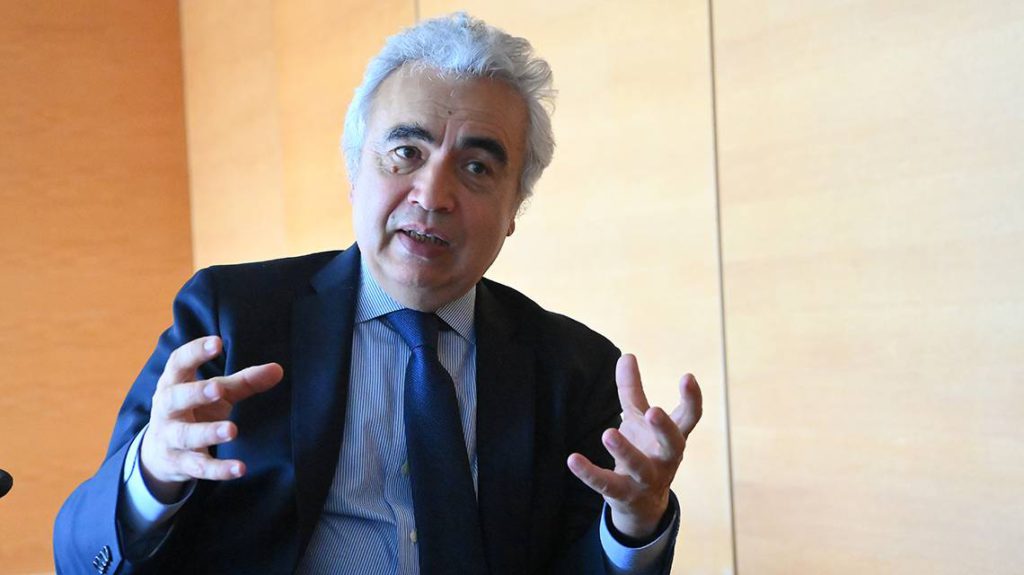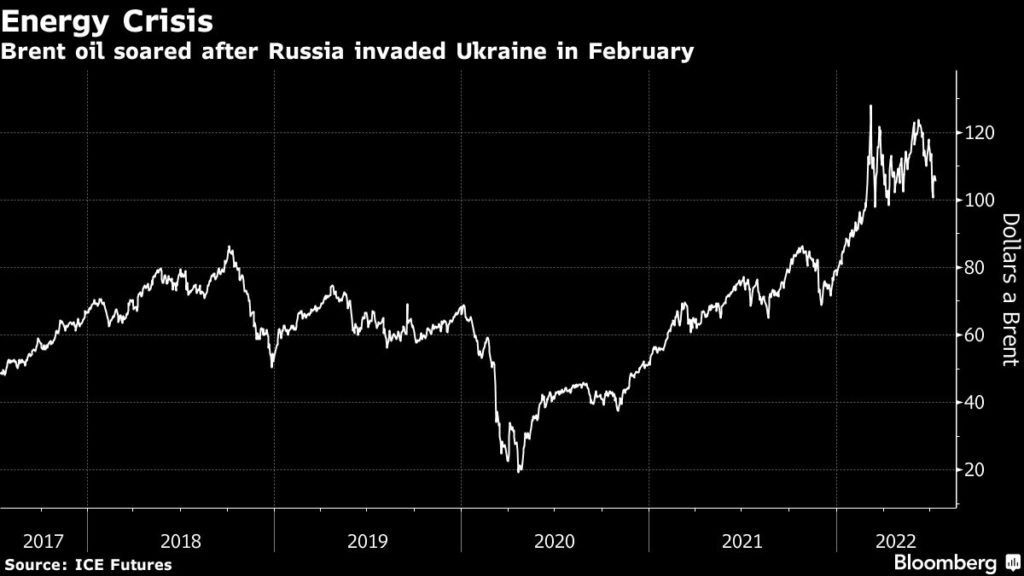Worst of global energy crisis may still be ahead, IEA says
Bloomberg News | July 12, 2022 |

IEA Executive Director Fatih Birol. Credit: IEA
A global squeeze on energy supply that’s triggered crippling shortages and sent power and fuel prices surging may get worse, according to the head of the International Energy Agency.

“The world has never witnessed such a major energy crisis in terms of its depth and its complexity,” IEA Executive Director Fatih Birol said Tuesday at a global energy forum in Sydney. “We might not have seen the worst of it yet — this is affecting the entire world.”
The whole energy system is in turmoil following the February invasion of Ukraine by Russia, at the time the biggest oil and natural gas exporter and a major player in commodities, Birol said. Soaring prices are lifting the cost of filling gas tanks, heating homes and powering industry across the globe, adding to inflationary pressures and leading to deadly protests from Africa to Sri Lanka.
Like the oil crises of the 1970s, which prompted huge gains in fuel efficiency and a boom in nuclear power, the world may see faster adoption of government policies that speed the transition to cleaner energy, Birol said. In the meantime, security of oil and gas supplies will continue to pose a challenge for Europe, and also for other regions, he said.
“This winter in Europe will be very, very difficult,” Birol said. “This is a major concern, and this may have serious implications for the global economy.”

The fallout for the global energy sector as the US and allies challenge President Vladimir Putin over the war in Ukraine and seek alternatives to Russian exports have highlighted the need to reduce dependence on fossil fuels, US Energy Secretary Jennifer Granholm told the same forum.
“Our move to clean energy globally could be the greatest peace plan of all,” she said. “We want and need to move to clean.”
Nations need to guard against switching reliance on one dominant energy supplier — Russia — for another in the shift to clean power, Granholm said.
“China has big-footed a lot of the technology and supply chains, and that could end up making us vulnerable if we don’t develop our own supply chains,” she said.
The nation controls about 80% of the global supply chains for solar power, which is set to rise to 95% by 2025, according to the IEA. China dominates much of the lithium-ion battery sector, is a key producer of wind turbines and seeking to quickly build capacity in clean hydrogen technology.
Developments including the US restricting imports of products from China’s Xinjiang region and a long-discussed tax in Europe on the import of goods made with high-carbon energy could help diversify the solar supply chain by creating openings for manufacturers such as India, Martin Green, a professor at the University of New South Wales, said at the conference.
“By building resilient clean energy supply chains, we can protect our economies from the shocks of the next crisis,” Australia’s Climate Change and Energy Minister Chris Bowen said in a speech at the forum. “There is no time to waste.”
(By David Stringer)
IEA Chief Warns The Energy Crisis Could Get Worse
- The IEA’s Executive Director Fatih Birol is warning that the global energy crunch could worsen.
- The top man of the IEA noted the whole global energy system was in turmoil following Russia’s invasion of Ukraine.
- “The world has never witnessed such a major energy crisis in terms of its depth and its complexity,” Fatih Birol said.
The global energy crunch might worsen further, the head of the International Energy Agency has warned, noting that winter in Europe will be “difficult”.
“The world has never witnessed such a major energy crisis in terms of its depth and its complexity,” Fatih Birol said on Tuesday at an industry event in Australia, as quoted by Bloomberg. “We might not have seen the worst of it yet -- this is affecting the entire world.”
The top man of the IEA noted the whole global energy system was in turmoil following Russia’s invasion of Ukraine, with prices of energy commodities skyrocketing across the board because of Russia’s size as an oil and gas exporter.
The situation is particularly bad in Europe, where, Birol said, “This winter [...] will be very, very difficult. This is a major concern, and this may have serious implications for the global economy.”
Indeed, Europe is already worrying about the winter after Russia reduced the flow of gas via the Nord Stream 1 pipeline in June, blaming a delay in receiving a turbine from Canada, which had just imposed fresh sanctions on Moscow.
Earlier this week, Canada agreed to return the turbine after Germany asked it to make an exception, but Gazprom stopped the gas flow via Nord Stream 1 completely for regularly scheduled maintenance, sparking fears that it might not restart the flow after maintenance is completed.
Europe has been snapping up LNG cargos from all over the world to fill its gas storage ahead of the next heating season—and to fuel its economies as it seeks to reduce imports of Russian gas—but it has still a way to go before it reaches the goal of 80 percent by end-October.
Birol compared the current situation to the oil crisis of the 1970s, noting how that crisis spurred major progress in fuel efficiency and saying this one could lend additional momentum to the transition to low-carbon energy.

No comments:
Post a Comment